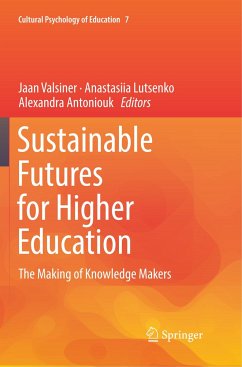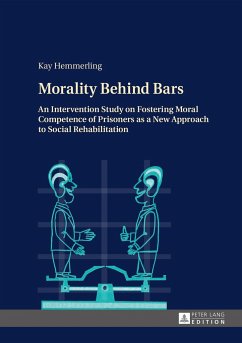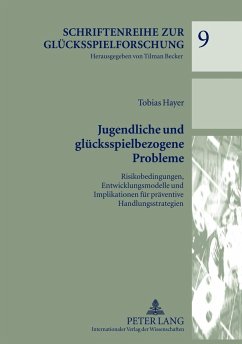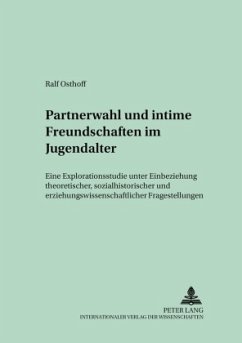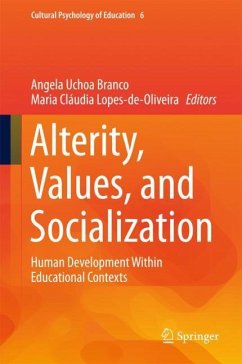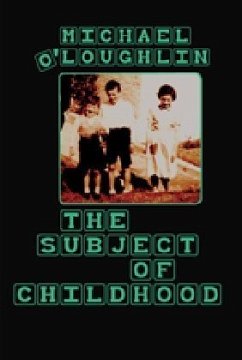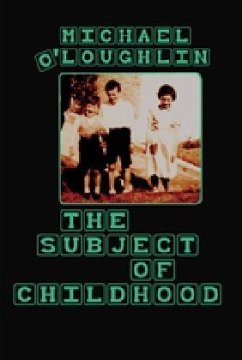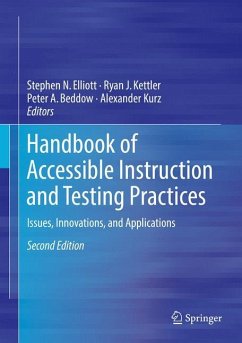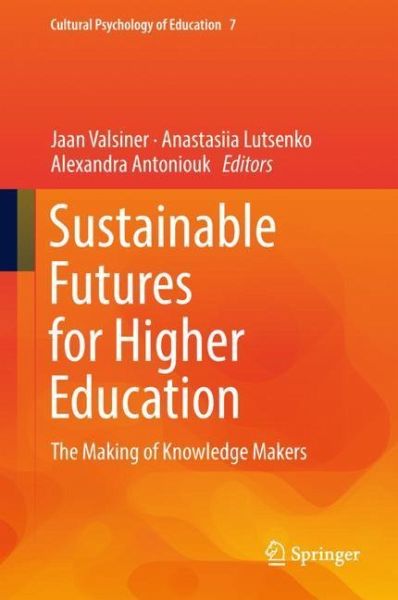
Sustainable Futures for Higher Education
The Making of Knowledge Makers
Herausgegeben: Valsiner, Jaan; Lutsenko, Anastasiia; Antoniouk, Alexandra

PAYBACK Punkte
42 °P sammeln!
This volume addresses the current situation in higher education and what creative action needs to be taken for the future development of the various systems of higher education. Higher education in the 21st centuries is under immense pressure from various sides. First, there is dramatic limitation of funding from public sources and limited and selective funding support from private sources that is re-constructing the landscape of higher education in most societies around the World. Secondly there is the continuous stream of administrative re-organization efforts of political origins (e.g. "the...
This volume addresses the current situation in higher education and what creative action needs to be taken for the future development of the various systems of higher education. Higher education in the 21st centuries is under immense pressure from various sides. First, there is dramatic limitation of funding from public sources and limited and selective funding support from private sources that is re-constructing the landscape of higher education in most societies around the World. Secondly there is the continuous stream of administrative re-organization efforts of political origins (e.g. "the Bologna process") that guide the advancement of higher education in our present time. Increasing privatization of all forms of higher education-from bachelor to doctoral levels-and its corresponding focus on the advancement of the kind of knowledge that has immediate applicability in various spheres of societies leads to the question- what kind of creativity is expected from the new cohorts of students-future makers of knowledge-once the current social re-organization of higher education systems becomes fully established. To address these questions the international, interdisciplinary cast of authors in this volume provides a multitude of possible scenarios for future development of the systems of higher education.
This book on "Sustainable Futures of Higher Education" captures the current trends and perspectives of the Knowledge Makers from various nations of the world on meeting and greeting the challenges of globalization and the pressures of the knowledge economy. It makes a strong case for universities of tomorrow sustaining their autonomous thinking and yet nurturing an environment of collaborative partnership with society, corporate and industry to fuel innovations in plenty and continuous supply of new science and technologies. Higher Education has been and shall remain a powerful vehicle of national and global transformation. I see a great value of the publication in impacting the minds of the leaders in higher education around the globe for revitalizing the universities.
Professor P. B Sharma, President of Association of Indian Universities, AIU
How should the higher education system be in the globalization era? In this book Jaan Valsiner and his colleagues analyze, criticize the existing and propose a new higher education system. When we say "higher education", three different layers are supposed to be there-- the lower, the middle and the higher. The latter has the function of production of new knowledges. Without new knowledge, our societies are never improving. Authors warn commercialized systems such as the "Bologna system" overestimate the homogeneity of education. ""Universities without Borders" would guarantee both diversity and innovation in the higher education systems.
Professor Tatsuya Sato, Dean of Research, Ritsumekan University
This book on "Sustainable Futures of Higher Education" captures the current trends and perspectives of the Knowledge Makers from various nations of the world on meeting and greeting the challenges of globalization and the pressures of the knowledge economy. It makes a strong case for universities of tomorrow sustaining their autonomous thinking and yet nurturing an environment of collaborative partnership with society, corporate and industry to fuel innovations in plenty and continuous supply of new science and technologies. Higher Education has been and shall remain a powerful vehicle of national and global transformation. I see a great value of the publication in impacting the minds of the leaders in higher education around the globe for revitalizing the universities.
Professor P. B Sharma, President of Association of Indian Universities, AIU
How should the higher education system be in the globalization era? In this book Jaan Valsiner and his colleagues analyze, criticize the existing and propose a new higher education system. When we say "higher education", three different layers are supposed to be there-- the lower, the middle and the higher. The latter has the function of production of new knowledges. Without new knowledge, our societies are never improving. Authors warn commercialized systems such as the "Bologna system" overestimate the homogeneity of education. ""Universities without Borders" would guarantee both diversity and innovation in the higher education systems.
Professor Tatsuya Sato, Dean of Research, Ritsumekan University



